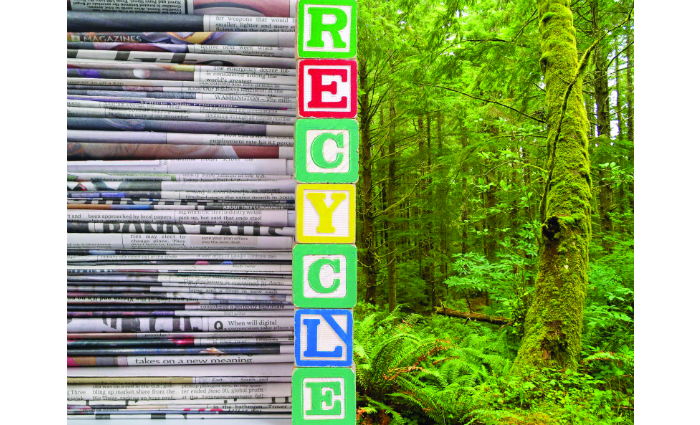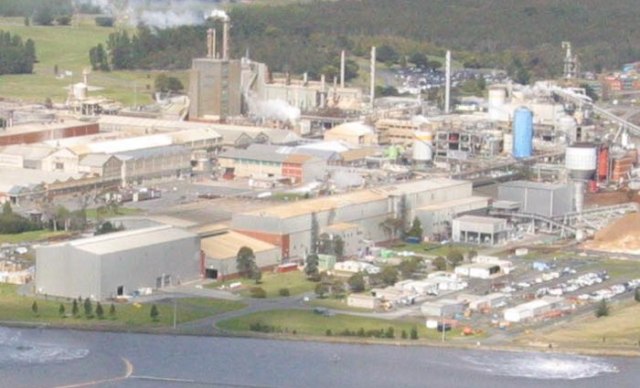
Tony, I have absolutely no dispute with the toxicology of modern printing inks or paper for that matter. In fact I don’t think I see that as a negative issue in my earlier comments, but I trust you raise that point for a good reason. However, the fact remains that inks (outside newspapers) are designed primarily to dry hard, every printer in the world knows that commercial printing inks must dry hard. The harder inks dry, the harder they are to remove, bleeding obvious really.
Your comment that deinking is a snap with a bit of soap at home – I think that example should be left to primary school excursions rather than a technical argument in a serious industry journal. The deinking grinding processes is far more rigorous and energy intensive than putting a few Lux flakes on a handful of wet paper. The subsequent dewatering process on a paper machine is more difficult in the case of recycled fibre compared to virgin this increases the energy required for drying and therefore increased energy requirement.
One key point that should be made is that when a virgin pulp mill is situated next to a paper machine, in other words an integrated site, the pulp residues provide almost the entire ‘carbon free’ energy fuel, (solid biofuel and black liquor waste) to provide power to the paper machine. In this way virgin integrated sites are by far the most environmentally friendly form of paper production. I am sure the Norke Skog mills in Norway would be able to provide evidence of their incredibly low carbon emissions in the case of their integrated sites, massively lower than a consumer recycled fibre mill. The most environmentally friendly papers are manufactured at integrated virgin pulp and paper mills, absolutely.
Tony you cannot include the carbon from wood fibre in any true carbon emissions calculation. Wood fibre carbon is terrestrial carbon and therefore not included in the emission cycle or calculation. We should only really look at fossil carbon, or its equivalent. I really do not think any paper company would include the carbon in their fibre as a part of their carbon calculation, if they did they would also be allowed to include the many decades of carbon sequestration into wood and soil as a result of tree growth, but they cannot and they do not. If you do have a Sustainability Report from any paper company that does include the wood fibre as a part of their carbon calculation I would be happy to see it, (other than a report from a small African mill in the 1600s of course).
The NSW EPA and other groups around the world have produced research that says used paper put into appropriate landfill site would be environmental beneficial because it effectively shifts terrestrial carbon underground, and is therefore compensating for liberated sub terrarium fossil sources of carbon. There was a very good story on this in New Scientist magazine about three or four years ago by a Prof Zing Neng in San Francisco. I am sure you can find it.
Bystrom and Lonnstedt in their paper ‘The Economic and Environmental Impact of Paper recycling’ 1997 say ‘according to the (ELU) Environmental Load Unit- index gives no evidence that increased recycling is an environmentally-friendly policy’. They go to say ‘the results supports energy recovery from waste paper as a substitute for fossil fuels’. In other words burning waste paper to collect the heat energy is more environmentally friendly than recycling it. The ELU-index, refer to Steen & Ryding, 1994. While this seems to be the case in Europe that’s not to say it is definitely the case here in Australia, but it should surely raise the point that we should question what we believe is best for the environment. But those people and firms specifying recycled paper from Europe should really consider the paper manufacturing alternative methods.
In Sedjo, Sampson and Wisniewski, Economics of Carbon Sequestration in Forestry 1997, page 205 states that ‘ Even if clean energy is used, increased fibre recycling has a negative impact on the environment’.
An excellent recent book on the topic is ‘Environmental impacts of waste paper recycling’, Y Virtanen, S Nilsson – 2013. The scholarly work covers some recent and past research into the topic and suggests that blindly increasing recycling paper without considering other uses such as incineration is not in the best interest of the environment.
Tony you are right. There are some isolated instances of individuals and small firms that recycled and reused paper fibre and indeed waste cloth going back centuries, just because they did it does mean it is right to do. The mass volume market for recycled fibre began as a result of massive forest resource decline that occurred in mostly Europe during the late mid period of last century as a result of high sulphur content fuels such as diesel. The European countries imposed a sulphur tax to force the use of cleaner fuel and so reduced the problem. This was in fact the topic of Federal Environment Minister Greg Hunt’s university thesis on the success of the European Sulphur Tax and the subsequent reduction in acid rain.
Your suggestion that the Black Forest was protected from pollution is remarkable. Are you suggesting that air pollution doesn’t travel? When the nuclear power plant in Japan blew up a few years ago I am sure the people in Tokyo a few hundreds of kilometers away from the explosions would have been reassured by your assertion that pollution is local. For a very detailed academic review of the acid rain era you could read Ulrich Beck’s book ‘Risk Society Towards a New Modernity’, 1992. Beck is one of a core group of acknowledged scholars in the area of industrial pollution and its causes. Also being a German national he was physically close to it so I gather he has a pretty good handle on the topic. He dedicates a reasonable amount of attention to the Black Forest and also the decimation of European forest stocks during this period last century.
In regard to Life Cycle Analysis, LCA in a recent academic study ‘Paper waste – Recycling, incineration or landfilling? A review of existing life cycle assessment’, 2007 A Villanueva, H Wenzel. They studied nine international LCAs and 73 case studies and found they all showed significant pitfalls in their analysis making the conclusions from these LCAs questionable.
The well known scholar Karl Popper was right when he said, ‘Criticism means progress’. So I really do welcome your comments, even though I disagree with many aspects of your response, I do welcome that we can openly debate this important topic.
I think there is enough research from around the world, other than my comments, that suggest recycling is perhaps not the environmental process we all think. Perhaps paper collected from consumers should really be used for other products including paneling, construction, furniture and insulation . This would allow the paper industry to really become environmentally friendly using virgin fibre and at the same time create other manufacturing opportunities in other industry sectors using collect waste paper.
I should make the point that my University of Technology research published in 2009 proposed the printing industry has greatly reduced its impact on the natural environment, perhaps achieving more than any other industry sector. Dr. Maria Enroth from Oslo University in Norway came to similar conclusions about the printing industry in her 2010 research paper. The paper industry has emerged as a major part of the work with remarkable progress in water, energy and forestry. You mention Norske Skog, they are definitely a leader in the environmental space having made tremendous advances over the past two decades. I just do not think recycling is a part of the massive improvement made by the industry. I think a continued focus on recycling paper as a general term devalues the many real advances made around the world in the print industry, including those in the newspaper sector of course.
Comment below to have your say on this story.
If you have a news story or tip-off, get in touch at editorial@sprinter.com.au.
Sign up to the Sprinter newsletter


